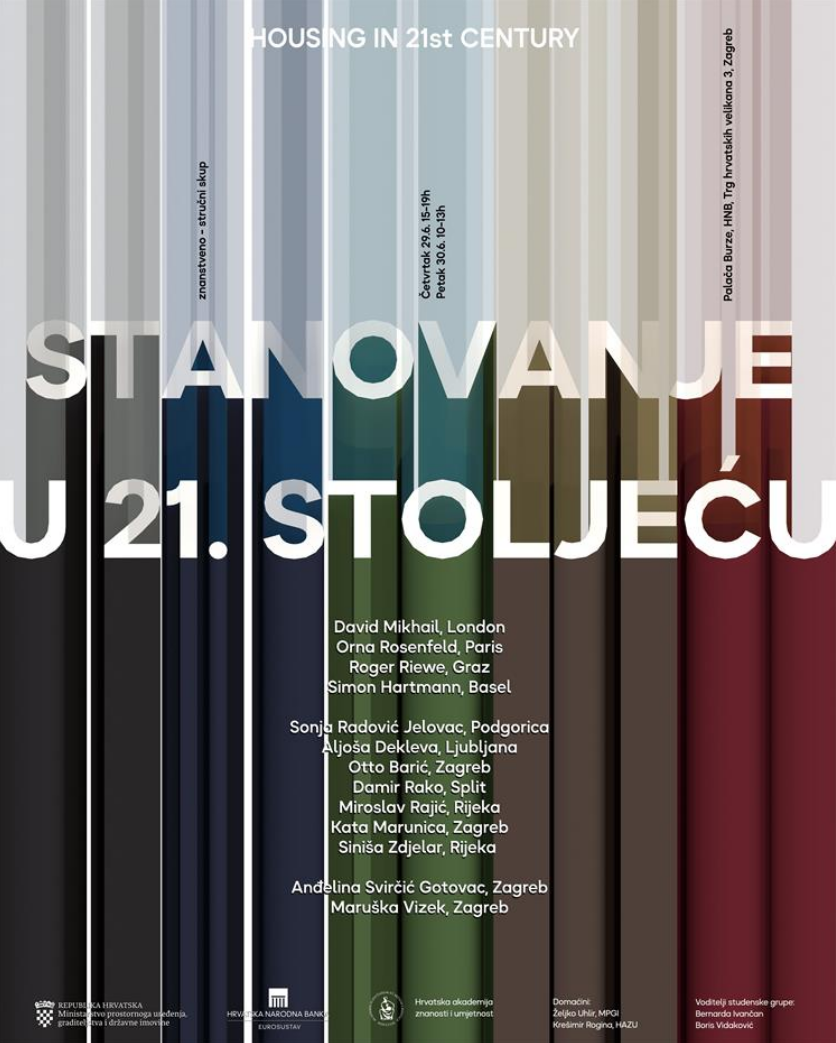Housing in 21st century - Croatian National Housing Strategy 2030
Posted on 30-06-2023
Zagreb just hosted a two-day conference titled "Housing in the 21st Century," organized by the Ministry of Physical Planning, Construction, and State Assets. The primary objective of this conference was to address pressing issues in Croatia's housing market, explore global trends, and propose policy measures to achieve more affordable housing. These discussions were intended to inform the forthcoming national housing strategy for 2030. Prominent architects and policymakers from the field shared their insights during the event, with some presentations proving highly valuable while others lacked relevance in terms of decreasing housing affordability.
Although the architects' perspective dominated the conference, it is crucial to recognize the significance of social scientists in understanding the role of housing within our welfare and society. Here are the key takeaways from the conference:
- Croatia requires a comprehensive national housing strategy that considers local housing strategies. This approach would enable the country to seek foreign funding and delegate responsibilities to suitable entities, such as housing funds or organizations, similar to Slovenia's model. In doing so, it is essential to ensure that land ownership, construction, and maintenance are overseen by the local (or national) government, rather than driven solely by profit motives.
- Utilizing existing space and minimizing material consumption should be prioritized. Local authorities own numerous vacant housing units that are not utilized for public or social rental purposes. Relying solely on new land development as a solution is inefficient in various ways.
- Sustainability does not always align with affordability. For instance, constructing buildings with timber may offer environmental benefits and create a more liveable environment. However, this approach typically increases project costs by approximately 15%. Careful consideration is necessary when implementing sustainable practices to balance cost-effectiveness.
- Local residents face competition from foreign capital, raising concerns about protecting "Croatian land" from foreign investment funds. Domestic buyers often struggle to compete with foreign entities, as there are no legal barriers for foreigners to acquire construction or agricultural land in Croatia due to EU membership status. Therefore, implementing measures to tax housing units based on their intended use (residential or business) could help address this issue. However, policymakers must be mindful of the impact on rural areas, ensuring that such policies do not exacerbate their economic challenges.
The conference was timely, although some may argue it was long overdue. It is commendable that Croatia aspires to learn from countries like Austria and the Netherlands regarding affordable housing provision. However, valuable lessons should be drawn from countries such as Slovenia and Slovakia, which share similar historical and cultural backgrounds, but are much more advanced in affordable housing provision.
I eagerly await the national strategy, hoping it includes a comprehensive needs assessment, an actionable plan, and measurable goals against which the success of housing policies can be evaluated.


